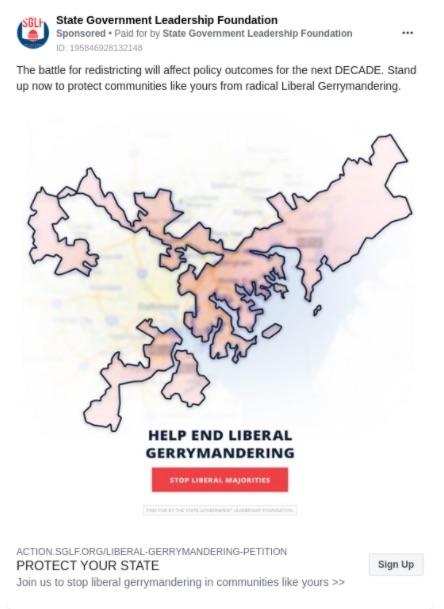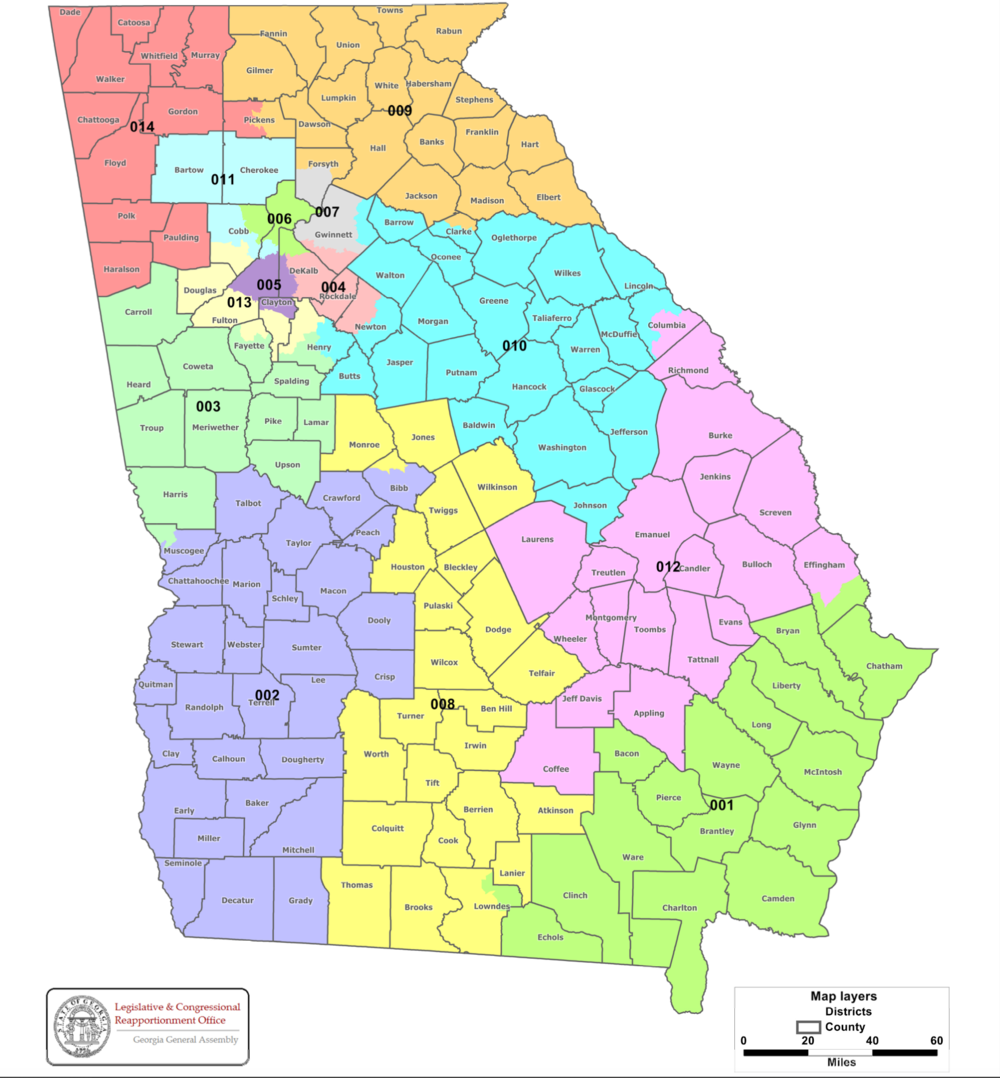
Caption
Pictured is a social media ad used to support Republican state legislative candidates in 2020. The GOP retained its majority in Georgia state government in time for the once-per-decade redistricting process — gaining it a chance to craft favorable districts for the party for the 2020s.
Credit: State Government Leadership Foundation





